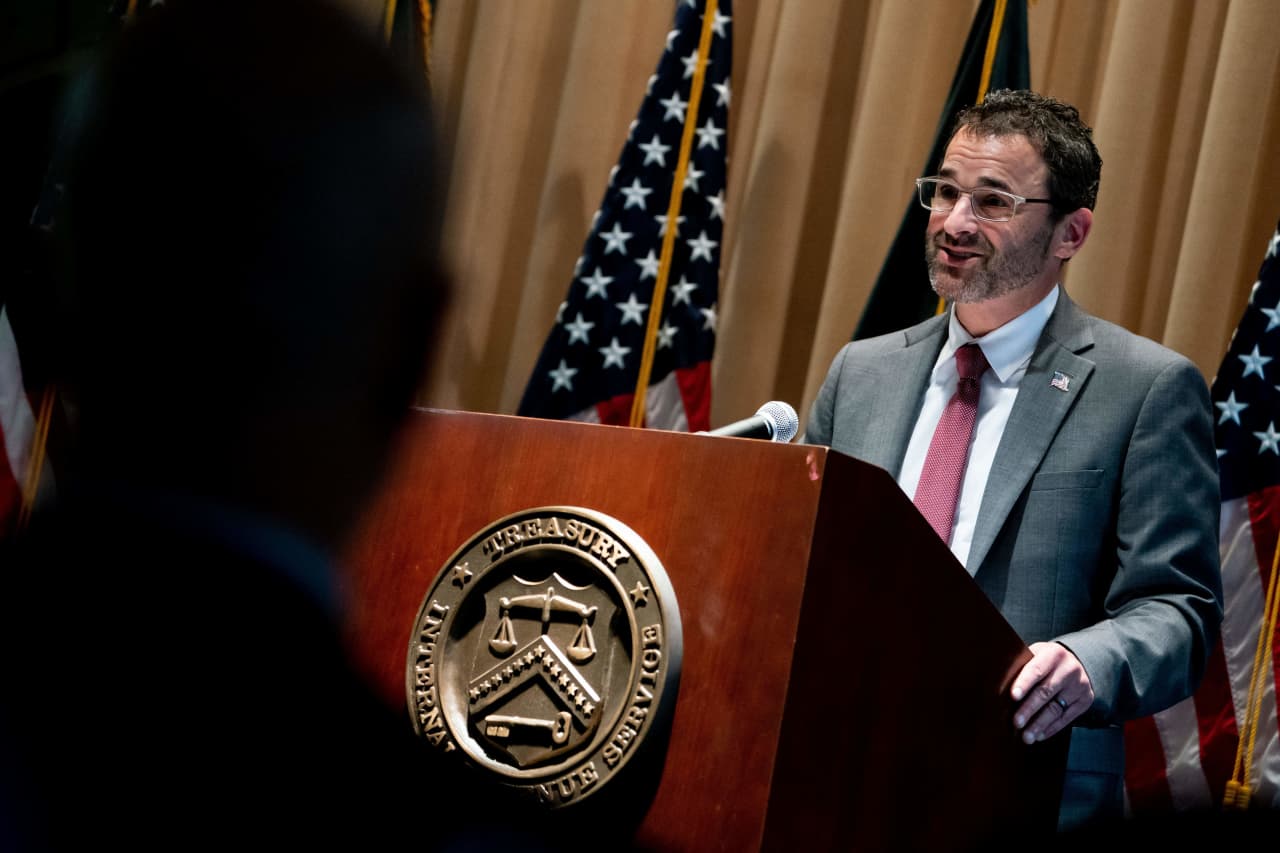Millionaires who lagged on their taxes have actually currently paid a half-billion dollars to get existing with the internal revenue service as the company ratchets up top-level enforcement of tax compliance.
On Friday, the internal revenue service revealed brand-new numbers on the quantity of back taxes paid by millionaire homes since a 2022 upgrade brought harder internal revenue service enforcement on organizations and superwealthy tax lawbreakers and dodgers.
internal revenue service authorities stated they have actually drawn in a more $360 million from millionaire homes with a minimum of $250,000 in tax financial obligations. That follows an October internal revenue service statement that $160 million in overdue taxes had actually been raked back from rich homes.
That’s $520 million completely– and a strong preliminary roi for a multibillion-dollar financing increase, according to internal revenue service Commissioner Danny Werfel.
” We are seeing substantial early signs that our increased examination … is having instant effect,” Werfel informed press reporters Thursday. He likewise kept in mind the internal revenue service is pushing ahead with brand-new audits on corporations and deep-pocketed collaborations.
There’s an unpredictable future for a part of the cash connected to that harder position, however.
The Inflation Decrease Act of 2022 licensed $80 billion to the internal revenue service over a years. Over half the cash was allocated to restore flagging enforcement of corporations, collaborations and abundant homes.
Werfel and the Biden administration have actually promised no boost on the audit rates for homes earning less than $400,000 a year.
However in an offer to raise the financial obligation ceiling, the White Home concurred with Home Republican politician mediators to reroute $20 billion somewhere else. Part of a brand-new possible offer to avoid a partial federal government shutdown on Jan. 19 would accelerate the pullback of that $20 billion.
A sped-up claw-back of the $20 billion would not impact the internal revenue service’s upgrades and top-level crackdown till the later years of the years, Werfel stated.
However it’s cash well-spent on enforcement and much better customer care, he stated. “For this development to continue, we should keep a trusted, constant yearly appropriation for our company, along with keeping Inflation Decrease Act financing undamaged,” Werfel stated Thursday.
There are moneying concerns for the long term, however likewise concerns in requirement of responses rather.
Income-tax-filing season starts on Jan. 29, and internal revenue service financing might struck a wall on Feb. 2 without a brand-new costs offer. Though individuals will still have the ability to submit their 2023 income-tax returns in case of a lapse, Werfel kept in mind that a federal government shutdown has actually never ever happened throughout tax-filing season.
” Shutdowns are extremely disruptive,” he stated, later on including that coming across one now would “increase the threat that we do not have as smooth a filing season as we mean to have.”
